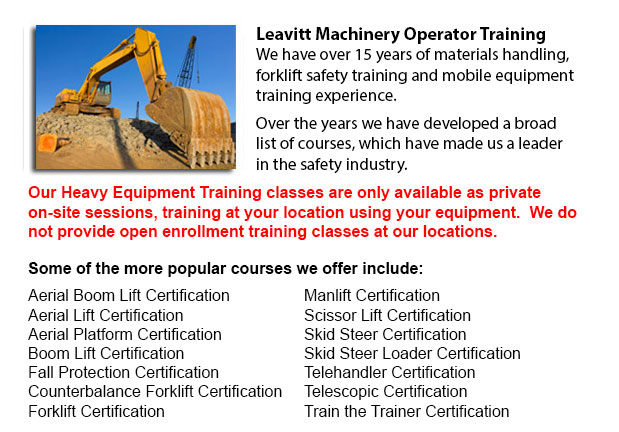
Heavy Equipment Training London - The two most common types of heavy equipment training are categorized into the categories of equipment; machines that is fashioned with rubber tires or those with tracks. The tracked vehicle are heavy duty machines like for example excavators, cranes, and bulldozers. They make up the most common kind of heavy equipment training. Typically, the rubber tire training includes the rubber-tired kinds of earth movers, end loaders and cranes. Heavy equipment training likewise includes utilizing various vehicles with rubber tires such as dump trucks, graders and scrapers. Training centers often include truck driver training for the many types of heavy equipment training.
The majority of all heavy equipment runs on diesel fuel and as such, the fundamentals of diesel mechanics are a major component of heavy equipment training. Normally, a basic course on diesel mechanics is typically required of trainees. Amongst the main objectives of the program are to educate an operator about maintenance procedures and basic troubleshooting in the event of a problem with the machinery. Normally, this training saves a mechanic from being called out in the middle of nowhere just because a piece of equipment needs the addition of something minor like engine oil. Diesel mechanics for heavy equipment is an education all unto its own; thus, extensive training is not usually included in the course book for the general training course.
There is a wide variety of programs for training operators on heavy equipment. The more intensive training courses offer both hands-on machine operations along with classroom experience, providing a good amount of training and knowledge for students. Many programs offer both a diploma upon graduation and a heavy machinery certification upon program graduation. Training connected to safety is a huge portion of all training. Programs such as crane school, that involve overhead lifting also, consist of hand signal programs and radio receiving and transmitting courses during the training. This training is vital since lots of forklift operators and crane operators place and lift equipment and pallets which they cannot see. The majority of crane operation is carried out by an operator receiving hand signals from someone on the ground.
There are several places where heavy machinery colleges have opened which specialize in heavy machinery operator education. Much of the training for the heavy machinery is done by the military. There are various former military instructors who teach courses in a civilian training session. There are various heavy equipment training schools which operate and own gravel companies and they can have their students trained in an actual working quarry. There are various courses that lease space in a working quarry instead. These programs provide the quarry with free labor whilst the students are practicing and operating machines.
-
Forklift Training Course London
Forklift Training Course London - Federal and industry regulators have established the criteria for forklift safety training according to their existing standards and regulations. Individuals wishing to utilize a forklift must complete a forklift tra... More -
Telehandler License London
Telehandler License London - A telehandler or telescopic handler is a machine which is generally utilized in agricultural and industrial applications. It has a similar appearance to a forklift and even functions in a similar way, even if, the telehan... More -
Forklift Training Schools London
Forklift Training Schools London - Forklift Training Schools - For The Safety Of Your Staff Are you looking for a job as a forklift driver? Our regulatory-compliant mobile equipment operator training offers instruction in kinds of forklifts, pre-s... More -
Heavy Equipment Certification London
Heavy Equipment Certification London - Large pieces of machinery and heavy-duty vehicles are usually referred to as heavy equipment. This broad term includes utility vehicles from agricultural and forestry implements to construction equipment, civil... More -
Telehandler Training in London
Telehandlers or also called Telescopic handlers are really popular piece of heavy construction equipment normally used in agriculture and construction trades. These machines have farthest reaching capability and are able to get to places where a stan... More -
Heavy Equipment Operator Training London
Heavy Equipment Operator Training London - Training facilities which offer quality standards within the industry and not only offer field performing tasks but added machine training are really in demand. Accredited schools provide students the unders... More -
Telehandler Training Courses London
Telehandler Training Courses London - The employer has the responsibility to make certain that their workers are trained to work competently using telehandler machinery. The staff have to be assessed for their skill to make use of the machine. If def... More -
Heavy Equipment Training Programs London
Heavy Equipment Training Programs London - At whichever given construction site, there are usually various kinds of equipment which are ready to be used. These heavy and light equipment require both operators to run them and mechanics to fix them. Tr... More

Forklift Training London
TOLL FREE: 1-888-254-6157
London, Ontario
forklifttraininglondon.ca
Email Us
About Us


